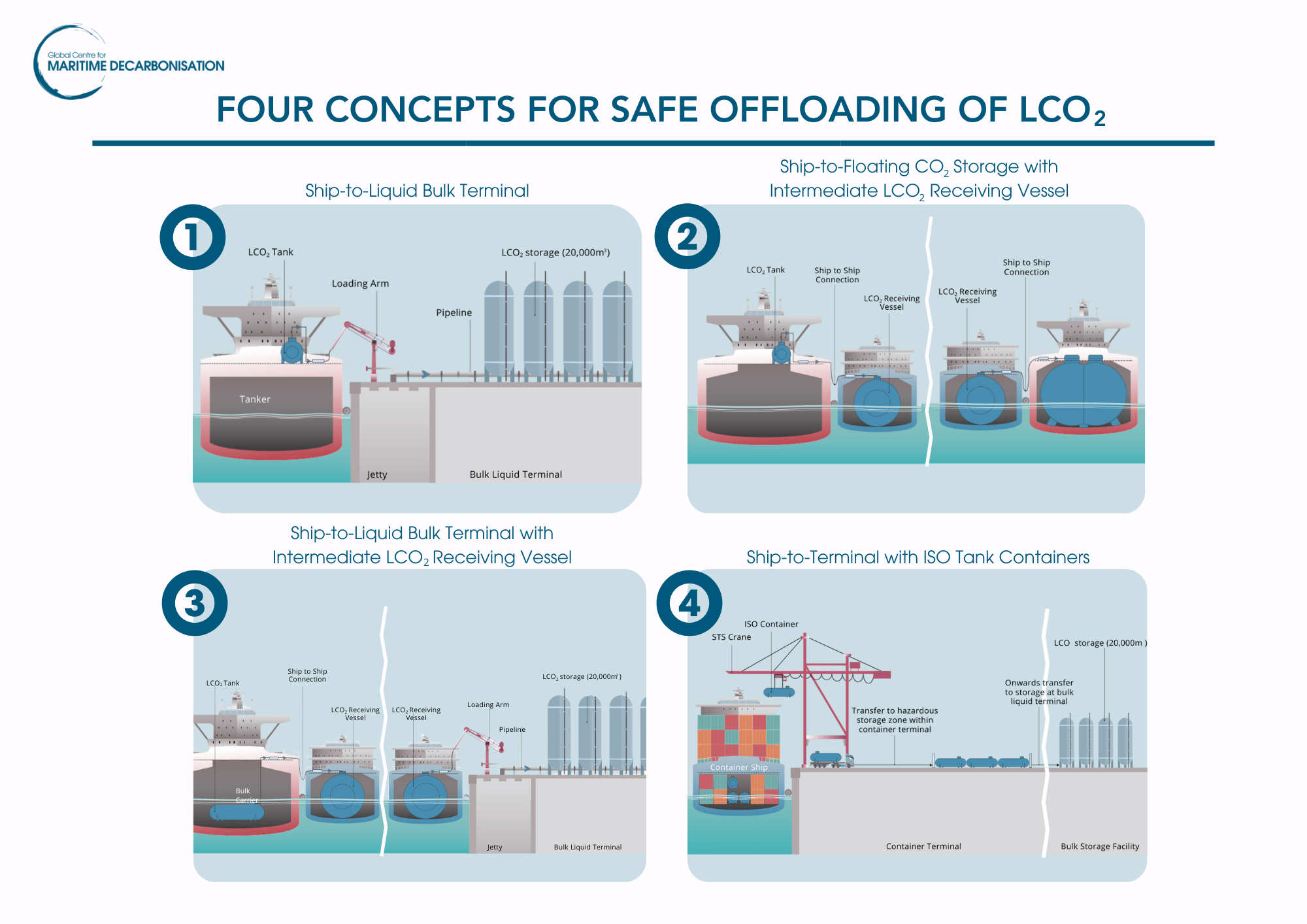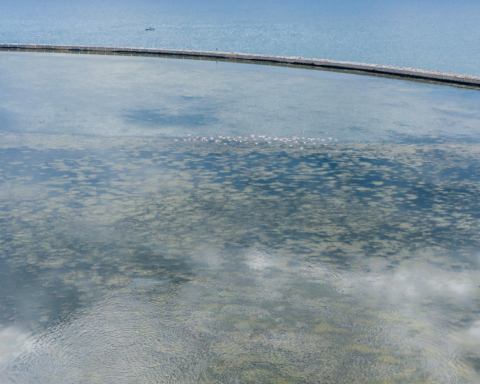A recent study commissioned by the Global Centre for Maritime Decarbonisation (GCMD), in collaboration with Lloyd’s Register and ARUP, found that a limited number of ports have the necessary infrastructure in place for offloading liquefied carbon dioxide from ships.
The study examined over ten global infrastructure projects for offloading liquefied CO2 either located predominantly near carbon-emitting industrial clusters or are connected to these clusters by transport infrastructure. The report highlights that these projects are designed to handle much larger volumes of LCO2 than OOCS systems and that, in order to achieve economies of scale, it will be necessary to integrate these projects with the necessary port infrastructure for LCO2 offloading, storage and transport.
Furthermore, the introduction of liquefied carbon dioxide offloading facilities in intensively used port areas risks impacting port efficiency and operational performance. The study points out that additional buffer zones are needed to address the safety issues related to the handling and storage of liquefied CO2.
Translation by Giles Foster




